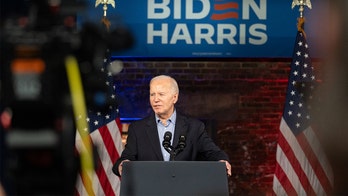Supreme Court Justice Neil Gorsuch has expressed concern over President Biden's proposed changes to the court. Meanwhile, the Apache tribe is seeking the court's protection of their sacred Oak Flat site, claiming the government's plan to transfer it for mining violates their religious rights.
In the ongoing saga of America's judiciary, the Supreme Court is facing a pivotal showdown. President Biden's proposed reforms have drawn the attention of Justice Neil Gorsuch, who has urged caution. Simultaneously, the Apache tribe is locked in a battle with the government over the fate of their sacred Oak Flat site.

Supreme Court Showdown: Biden's Radical Proposals vs. Apache Religious Rights
Justice Gorsuch, known for his conservative views, voiced his concerns about Biden's plans on "Fox News Sunday." He warned against "radical changes" to the court, arguing that "we should always be careful when we're talking about dramatic changes to institutions."
Meanwhile, in Arizona's San Carlos Apache Nation, the tribe is waging a legal fight to preserve Oak Flat, a 6.7-square-mile site they hold sacred. The tribe's nonprofit, Apache Stronghold, has filed a petition before the Supreme Court, invoking the Religious Freedom Restoration Act (RFRA) and the Free Exercise Clause of the First Amendment.

Supreme Court Showdown: Biden's Radical Proposals vs. Apache Religious Rights
The site, east of Superior, Arizona, holds immense cultural and spiritual significance. It encompasses old-growth oak groves, sacred springs, burial grounds, and countless archaeological remnants of the tribe's 1,500-year-old presence. The Apache view it as their Mount Sinai, the birthplace of their ceremonial ways and the locus of their identity.
In 2014, a lucrative copper deposit was discovered beneath Oak Flat. Resolution Copper, a joint venture of mining giants Rio Tinto and BHP, sought to acquire the land for extraction. With support from Republican senators John McCain and Jeff Flake, they attached a land-transfer bill to the National Defense Authorization Act.

Supreme Court Showdown: Biden's Radical Proposals vs. Apache Religious Rights
Under the bill, the government would transfer 2,422 acres of Oak Flat to Resolution Copper in exchange for 5,344 acres elsewhere. However, environmental assessments have revealed that the mining operation would irrevocably destroy the sacred site.
Apache Stronghold argues that the government's plan violates their religious freedom by depriving them of a place central to their spiritual practices. They cite numerous ceremonies and rituals that take place at Oak Flat, including the Sunrise Ceremony, a multi-day celebration marking a girl's entry into womanhood.

Supreme Court Showdown: Biden's Radical Proposals vs. Apache Religious Rights
"Destroying Oak Flat would be an egregious violation of our nation’s promise of religious freedom for people of all faiths," said Luke Goodrich, vice president of Becket, the nonprofit representing Apache Stronghold.
The government maintains that its actions do not violate RFRA and that the mining project is necessary for economic development. However, Becket counsel Joe Davis counters that there is no legal basis for exempting the government from RFRA's protections on federal land.
The Supreme Court's decision on whether to take up the case will have far-reaching implications. It could set a precedent for the protection of religious freedom on public lands and shed light on the potential limits of RFRA. The case is expected to be heard by the court as early as October.










